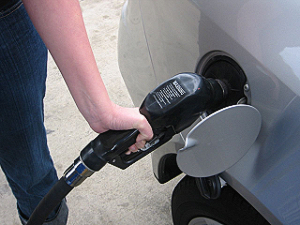Q. Greetings Umbra,
To save energy and limit greenhouse gas emissions, I’ve so far resisted establishing my own website. However, because I’m an author and these days almost all authors use websites to further their careers, I’m now thinking of setting one up. How much energy do websites actually consume? Are there ways to make them less energy consumptive? Do any web hosts use renewable power, and if so, which ones use the highest percentage? (BTW, a few years back after the release of my book Divorce Your Car! several people suggested my next book should be Divorce Your Computer!)
Katie Alvord
Upper Peninsula, Mich.
A. Dearest Katie,
Number one reason to divorce the computer: it makes you dumb. For example, after researching the answer to your question for a while, I decided I would go look up your website. Except, as we know, you don’t have one. Something about all that staring numbs the brain.
Up front, I will say that this sludge-brained person could not find a lot of specific answers to your very good questions. But as usual, that has not stopped me from developing a general opinion out of which I will proffer various advicey suggestions such as: go ahead and make a website.
 A keystroke of greenius.iStockThere are a few steps you can take that will put your website on the greener side of the giant internet meadow. Use shared hosting (of course you will — you don’t need your own entire server). Find, as you say, a host that purchases renewable energy certificates, or in some other way is “using” renewable power. There are many, and they can be found by visiting … websites! … and searching for “green hosting.” Many advertise as 100 percent renewable, plus maybe they’ll plant a tree for you, and all their employees bike to work, and also did they mention they have some fancy type of server that is already much more efficient? I found many green host businesses while trolling around; if it feels a little easier to start with a compilation, here’s one “top green hosting” list I came across.
A keystroke of greenius.iStockThere are a few steps you can take that will put your website on the greener side of the giant internet meadow. Use shared hosting (of course you will — you don’t need your own entire server). Find, as you say, a host that purchases renewable energy certificates, or in some other way is “using” renewable power. There are many, and they can be found by visiting … websites! … and searching for “green hosting.” Many advertise as 100 percent renewable, plus maybe they’ll plant a tree for you, and all their employees bike to work, and also did they mention they have some fancy type of server that is already much more efficient? I found many green host businesses while trolling around; if it feels a little easier to start with a compilation, here’s one “top green hosting” list I came across.
Caveat: In my own attempt to have an extended date with my computer and not a trip to the altar, I do not know enough about web hosting to evaluate these many sites. Perhaps you or some of our other users do?
The third step to the greener side of the internet meadow (one: shared hosting, two: green host) is to perhaps use a service that monitors the energy use of your website and then offsets that energy use. First your server would be “green,” then the traffic coming to your site would be made “green.”
There is no doubt that websites use energy, and there recently was a big fluff about how much energy a Google search consumes (Google claims 0.0003 kWh, or about 0.2 g of CO2 per page search). One researcher involved in the kerfluffle estimates that “browsing a basic website generates about 20 mg of CO2 for every second you view it.” That’s the closest answer I could find to the meat of your question. You may also be interested in this dense narrative of research on energy use of information technology and office equipment, which accounted for maybe 3 percent of all U.S. electricity use in 2003.
Adding a website to your author portfolio is not a way to reduce your carbon emissions — especially as word spreads about your website and thousands come to visit. As carbon-based actions go, though, it is not a crazy one. If you already divorced your car, you likely have a well developed plan as to how and when you bring new carbon emissions in to your life. All I can tell you is, if a website is a necessary evil for your career, there are ways to render it less harmful. I look forward to seeing what you decide.
Surfily,
Umbra




